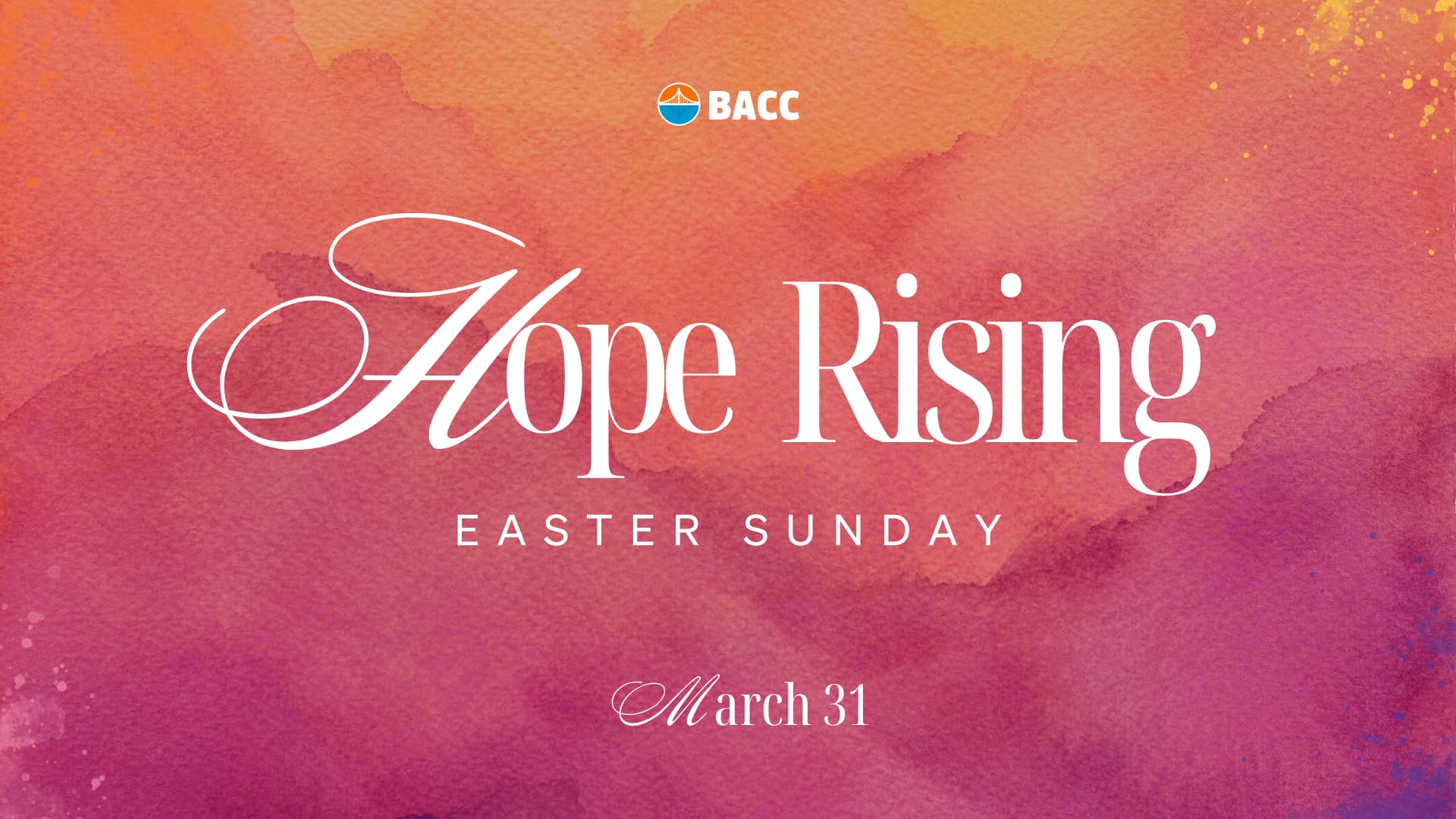Sign up for The Good Stuff
Our weekly newsletter filled with news, updates, and inspiring stories of how God is working in the Bay Area.
"*" indicates required fields
Sign up for The Good Stuff
Our weekly newsletter filled with news, updates, and inspiring stories of how God is working in the Bay Area.
"*" indicates required fields
Do not despise these small beginnings, for the Lord rejoices to see the work begin …
Zechariah 4:10 (NLT)
If you want to do something great, you can’t be afraid to start small. You just have to begin somewhere!
Becoming a force for good means becoming someone who changes the world for the better. I think most of us like the sound of leaving a positive impact on the world, but we don’t always know how to get started. When we see doing good as too grandiose a task we will get overwhelmed before we even begin.
To help you fight this mindset and actually get started on your journey to becoming a force for good in your community, follow these four simple steps.
1) Find your motivation
So I tell you this. Her many sins have been forgiven. She has shown that she understands this by her great acts of love. But whoever has been forgiven only a little loves only a little.”
Luke 7:47 (NIRV)
One of the biggest motivators for doing good is gratitude. After being totally freed from the shame of her past, nothing, not even public disapproval could get in the way of the woman in the passage above showing her gratitude.
In high school, one of my teachers went to adopt a girl who was being born in New Orleans. Our entire class was so sad to see her go because she really livened up the class, made it exciting and shared her life with us. We were grateful for her, so we pitched in money to buy an assortment of newborn necessities from a store one of the other students worked at. When my teacher finally returned, she broke down sobbing because the gift meant so much to her.
If you’re struggling to find the means or the time to do good, check your level of gratitude. How much time do you spend each day thinking about what you’re grateful to God for? Or why you are grateful for your friends or family?
Take time to journal out some kindnesses you have experienced from others. You will find that you naturally want to be more kind to those around you.
2) Find your compassion
35 Jesus went through many towns and villages. He taught in their synagogues. He preached the good news of the kingdom of God. He healed every disease and sickness. 36 Whenever crowds came to Him, He had compassion for them because they were so deeply distraught, malaised, and heart-broken. They seemed to Him like lost sheep without a shepherd. 37 Jesus understood what an awesome task was before Him, so He said to His disciples, “The harvest is plentiful but the workers are few. 38 Ask the Lord of the harvest to send more workers into His harvest field.”Matthew 9:35-38 (VOICE)
Matthew 9:35-38 (VOICE)
After seeing how God and people have met and continue to meet your needs, open your eyes to the needs of the others around you. Everyone experiences difficulty, even those who appear fine on the outside. When Jesus looked at people, he saw past the outside and saw their pain. And, he wants for us to learn to be “workers” who have this same heart toward those in pain around us.
Think of a time in your life you experienced difficulty or suffering, no matter how big or small. From a hidden character flaw you just couldn’t change to a failed relationship or an unexplained health challenge, the pain we have felt in our lives can help us feel compassion for others going through the same things.
What help did you need during this time of difficulty? What did people do that encouraged you? What do you wish someone had done for you? Use these questions to find your compassion and start thinking of areas you are passionate about helping others.
3) Find your vision
6 In his grace, God has given us different gifts for doing certain things well. So if God has given you the ability to prophesy, speak out with as much faith as God has given you. 7 If your gift is serving others, serve them well. If you are a teacher, teach well. 8 If your gift is to encourage others, be encouraging. If it is giving, give generously. If God has given you leadership ability, take the responsibility seriously. And if you have a gift for showing kindness to others, do it gladly.
Romans 12:6-8 (NLT)
Once you are filled with personal gratitude and empathy for the hurting ones around you, you have everything you need to start doing good. Time to get practical.
- Spend quality time asking yourself these questions in order to discover some ways you can you do good with the life you’ve led and the passions YOU possess.
- What are my talents/strengths/gifts?
- What makes me, me? My interests, passions, hobbies, habits, sins, weaknesses, etc.
- Which group of people do I have compassion for? Who can I help? What is one thing they need? How can I meet this need? How can I use my strengths and weaknesses to help them?
- Imagine. Brainstorm. Dream. Write. Pray. Bounce ideas off others. Steal ideas. Do a web search. Read books and articles. Watch movies. Draw. Paint. Get creative!
- What programs already exist that I can support? You don’t have to reinvent the wheel; there are plenty of programs like E-soccer that are already making a difference and may need your skill set to continue growing and making an impact.
Whichever sticks out to you most, go for it. A friend told me once, “When you don’t know what to do, just do something.” Don’t let yourself think of all the reasons why your plan won’t work or why you don’t have time; just get started. No matter how big or small your actions are, someone’s life will be better off because you decided to take action.
4) Find your friends
21 The eye cannot say to the hand, “I don’t need you!” And the head cannot say to the feet, “I don’t need you!” 22 On the contrary, those parts of the body that seem to be weaker are indispensable, 23 and the parts that we think are less honorable we treat with special honor. And the parts that are unpresentable are treated with special modesty, 24 while our presentable parts need no special treatment.
1 Corinthians 12:21-24 (NIV)
To do good, we will need help. MLK definitely didn’t operate alone; he was the public face of the nonviolent Civil Rights Movement, but none of it would have been possible without people like Bayard Rustin who worked behind the scenes to organize the 1963 March on Washington.
No matter which area of good you tackle, you need others: family, friends, acquaintances, online followers, any connection you have. Jesus searched for and called the twelve apostles to follow him right when he began his ministry. Who is going to be on your team?
Ultimately, loving action, prompted by personalized compassion and vision, is what makes you a force for good. It’s not the fame or the talent, the money or the means. It’s having the heart to give back and to respond to the goodness in your life by sharing it with the people closest to you.

Written by
Bay Area Christian Church
This was created by a member of the Bay Area Christian Church team.
We can change people’s lives through relationships, spirituality, and meeting needs, says our Executive Minister on CBN News
Join women from around the Bay Area for a night of inspiration and friendship.
We do Easter big around here—and with good reason!


